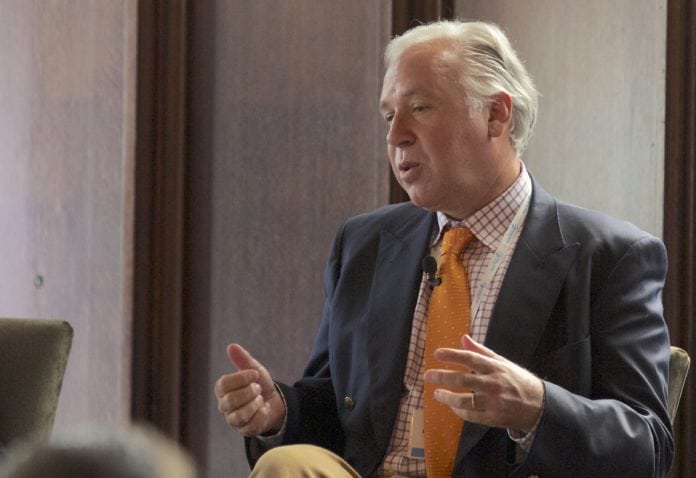It’s been roughly four years since Amedisys Inc. (Nasdaq: AMED) named Paul Kusserow as its president and CEO, a move effectively marking the beginning of the home health giant’s turnaround effort. Since December 2014, Amedisys has added a personal care business line and expanded its hospice presence, while largely outperforming industry players and broader U.S. markets alike.
A dedication to clinical excellence, a commitment to staffing and an investment in operational capabilities have been the main drivers of that success.
The company is now well-positioned despite challenges on the horizon, including the forthcoming Patient Driven Groupings Model (PDGM) for Medicare payments. Other providers in the sector might face more dire outcomes than Amedisys, though, unless certain aspects of PDGM are altered, Kusserow warned during a Tuesday presentation at the 37th Annual J.P. Morgan Healthcare Conference in San Francisco.
“As a company, we feel like we’re performing really well,” Kusserow said at the event. “We believe there’s a lot more to do. We believe we can take care of sicker patients — and we believe we can take business away from [skilled nursing facilities].”
In regard to clinical excellence, Baton Rouge, Louisiana-based Amedisys has raised its overall home health quality scores from a 2014 average of 3.2 stars to 4.4 in 2018. Previews of a hospice star rating system shared with Amedisys by the Centers for Medicare & Medicaid Services (CMS) also show the company is outperforming national averages for hospice scores, according to Kusserow.
“We don’t get up in the morning without thinking about clinical distinction,” he said.
As the same time, Amedisys has also been able to slash turnover rates from 2014 to 2018. Four years ago, Amedisys turnover checked in around 40%. The company’s current turnover is closer to 18%.
Amedisys’ commitment to quality factors into the turnover rate reduction, Kusserow said, as does its investment into operational capabilities, which includes rolling out innovative technologies and making sure the right systems are in place.
“We’re in the human capital management business,” Kusserow said. “We’re fundamentally in the staffing business. That means being the place where people want to go.”
Hitting stride with room to run
Amedisys’ personal care revenue was nonexistent in 2014. Today, it checks in at about $75 million.
Similarly, in its hospice business, Amedisys has simultaneously grown its average daily census from about 4,600 to nearly 7,800 during that same timeframe. The crown jewel of its hospice accomplishments came in October, when Amedisys announced it had an agreement in place to acquire New Jersey-based Compassionate Care Hospice for $340 million.
Amedisys will continue to pursue hospice acquisition opportunities, Kusserow said, though noting future deals likely won’t eclipse the Compassionate Care Hospice deal, which will make Amedisys the third-largest hospice provider in the country once finalized.
“There’s a good wind at our back. We believe in hospice,” he said. “We still have a lot in the pipeline form a hospice perspective, and you will hopefully be seeing more hospice deals this year.”
The Compassionate Care Hospice deal is expected to close on Feb. 1.
Potential challenges on the horizon
In many ways, last year was a banner year for Amedisys, as its 2018 market performance outperformed the S&P 500 by more than 100%. The company largely expects smooth sailing in 2019 as well, though potential hazards are on the horizon.
That includes PDGM and its controversial behavioral adjustments. PDGM — scheduled for the start of 2020 — is a payment overhaul for the home health industry with several major changes. The model is mandated to be budget neutral, but certain provisions — based on what CMS believes home health agencies will do once PDGM is implemented — could equate to a roughly 6.4% payment cut.
“We’ve recently had some very good meetings with CMS at high levels, so we’re feeling happy about the fact CMS is listening,” Kusserow said. “Prior to this … we felt they weren’t. If [PDGM] does go through as is, we’ll be fine. But the industry will not be fine.”
Although CMS finalized PDGM in October, industry stakeholders have worked to remove or lessen the behavioral assumptions by teaming up with Congress on three different pieces of legislation, while continuing to lobby CMS.
“Personally, behavioral assumptions and adjustments offend me because that’s punishing me for future behavior,” Kusserow said. “That doesn’t make sense to me.”
The hospital discharge process may also pose a challenge, according to Kusserow.
“The discharge process is broken,” Kusserow said. “There’s not enough people going into the home.”




